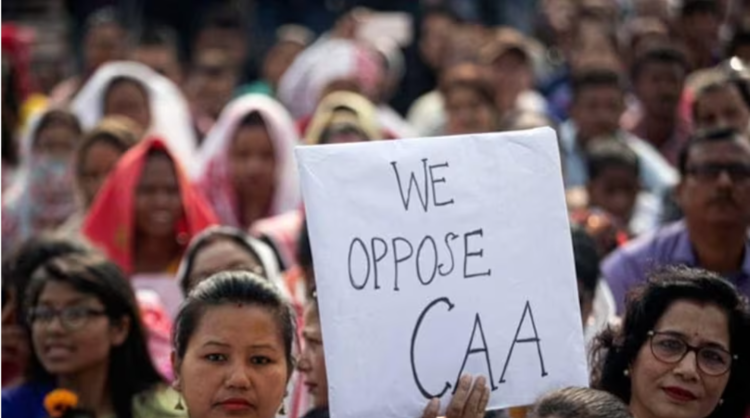
Newanomics AJAY ANGELINA reporter |
The U.S. government and the United Nations expressed their concerns about a contentious religion-based citizenship law in India, with the UN calling the legislation “fundamentally discriminatory in nature.”
Indian government’s move to implement 2019 Citizenship Amendment Act (CAA) is criticized by the Rights advocates. “It discriminates against Muslims” says the Human Rights Watch and Amnesty International.
A spokesperson of the Office of the United Nations High Commissioner for Human Rights said, “we are concerned that India’s Citizenship (Amendment) Act 2019 (CAA) is fundamentally discriminatory in nature and in breach of India’s international human rights obligations, as we mentioned in 2019”
He added the office was studying whether the law’s implementation rules comply with international human rights law.
On the other hand, the U.S said, “We are concerned about the notification of the Citizenship Amendment Act on March 11. We are closely monitoring how this act will be implemented, “said a U.S. State Department spokesperson reported by the Reuters.
“Respect for religious freedom and equal treatment under the law for all communities are fundamental democratic principles,” the US State Department spokesperson added in an email.
Activists and Rights advocates says the India’s controversial citizenship law could be a discriminate against 200 million Muslims residing in India presents the world’s third-largest Muslim population. Some fear the government might remove the citizenship of Muslims without documents in some border states.
However, the Indian government denies the law is anti-Muslim and says it was needed to help minorities facing persecution in neighboring Muslim-majority nations, also says “its policies aim to benefit all Indians.”
Just few weeks before holding the election, PM Narendra Modi’s Hindu nationalist Bharatiya Janata Party (BJP) government has been pushing to implement CAA law, making it easier to get Indian citizenship only for non-Muslim refugees from Afghanistan, Pakistan and Bangladesh.










